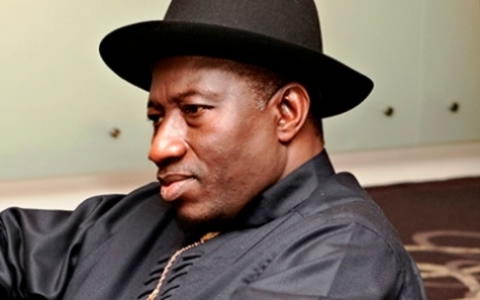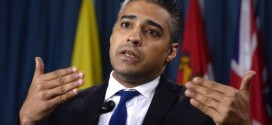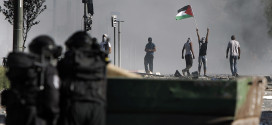In 2009, Nigerian police forces fighting Boko Haram in the northern city of Maiduguri lost about 30 officers in a violent firefight. The next day, they executed many of the men they had rounded up and detained as suspected Boko Haram fighters. The retaliatory killings often happened right outside police headquarters in full view of the public. Bodies piled up outside the building while the executions continued.
The incident illustrates the quandary the United States and international community face in helping the Nigerian government rescue the nearly 300 girls Boko Haram, an unquestionably brutal armed group, kidnapped last week:
The tactics of the government security forces are barely more palatable than those of the militants themselves. Nigerian security forces are known for raiding local communities, executing men in front of their families, arbitrarily arresting and beating people, burning residential property and stealing money while searching homes. Nigerian authorities also routinely hold suspects incommunicado without charge or trial in secret detention facilities and abuse and torture them. Unsurprisingly, due process rights for detainees are often absent.
It is against this unpromising backdrop that the U.S. recently agreed to send an “interdisciplinary team” to help the Nigerian government. A small delegation recently arrived in Abuja, the capital, to assist with hostage negotiation, intelligence sharing and victim assistance.
President Barack Obama is clearly moved to help; he has vowed to “mobilize the entire international community to finally do something against this horrendous organization that’s perpetrated such a terrible crime.” First lady Michelle Obama, in an unusual weekend message, emphasized the plight of the Nigerian girls and said, “I want you to know that Barack has directed our government to do everything possible to support the Nigerian government’s efforts to find these girls and bring them home.” Obama is right to get involved, but he should be wary: Given the history of Nigeria’s poorly trained and abusive security forces, any collaboration needs to be undertaken with great caution.
The kidnapping of hundreds of schoolgirls was a particularly bold move even for a group as wanton as Boko Haram is known to be. This past September, Boko Haram attacked the northeastern town of Benishiekh, killing more than 140 people in a brutal siege. Witnesses, to whom we spoke, described seeing dead bodies strewn along the ground with their feet and hands bound. Some had been shot in the head, others decapitated.
In November, Human Rights Watch learned that Boko Haram was abducting scores of women and recruiting children into its ranks. Government security forces, meanwhile, were detaining hundreds of men and boys and later making them “disappear.” Some of the captured girls were found and returned home, but no investigation was opened into the forced disappearances.
There’s no question that the Nigerian government has failed to adequately address the problem of Boko Haram, primarily because it is relying solely on a hard-nosed, military approach instead of crafting a more wide-ranging strategy to address some of the catalysts of Boko Haram’s existence: rampant corruption, widespread poverty and systemic impunity for abuses.
The security forces’ behavior has caught some Nigerians in the crossfire and emboldened Boko Haram. Many local northern communities are deeply distrustful of the government as even this past week, with calls to #bringbackourgirls reaching a fever pitch on Twitter, there were media reports of additional abductions and scores more civilians killed.
In the past year, several senior U.S. government officials have expressed concern over the Nigerian security forces’ heavy-handed approach and gross violations of human rights. Some have called for accountability, although the United States has done little to follow up.
In the near term, making sure old habits aren’t repeated requires that Abuja authorities take a serious look at what a military response to Boko Haram should look like. For starters, it needs to be part of a wider plan that includes governance, accountability and development. But, within the security realm, the U.S. and other donor governments should impress upon Nigeria the need to act in accordance with its international legal obligations, including ensuring the security of the population in affected areas. By working quietly with communities to address local concerns, authorities in Abuja could help reverse the alienation of communities in the north.
Nigeria’s senior military leaders also need to reject outright the harassment and abuse of these communities, or the destruction of their property as a military strategy. Clear guidelines for how to protect — not prey on — vulnerable communities would be helpful. To underscore the importance of these concepts, the U.S. should offer assistance with operational planning and information sharing. Of course, in the end, it is the Nigerians themselves who will carry out any rescue operation, but given the global outcry, a reiteration of the Nigerian forces’ commitment to make the protection of the population a priority would send a tremendous signal.
For its part, the U.S. will have to uphold its own federal law by ensuring that any Nigerian military personnel implicated in serious human rights violations not participate in planning or operational initiatives. And Washington should encourage Abuja to open impartial investigations into any allegations that military personnel carried out abuses. This is necessary as a confidence-building measure and a signal that harsh crackdowns by military forces will no longer be tolerated. What is sorely needed is a pledge from Nigerian President Goodluck Jonathan that military personnel who violate rights will be promptly and appropriately disciplined or prosecuted.
If the past two weeks are any indication, the global outrage spurred by the kidnapping of these girls will only grow louder if Nigeria’s misguided and often ham-fisted approach to fighting Boko Haram continues. The Obama administration can’t fix the problem, but it can help make sure Abuja’s response is centered on a commitment to fundamental human rights, the rule of law and basic decency. To do any less might make the situation worse — and make the U.S. complicit in Nigeria’s abuses.
Published at The Human Rights Watch website
 The Arab Democrat The Latest From The Arab World
The Arab Democrat The Latest From The Arab World







